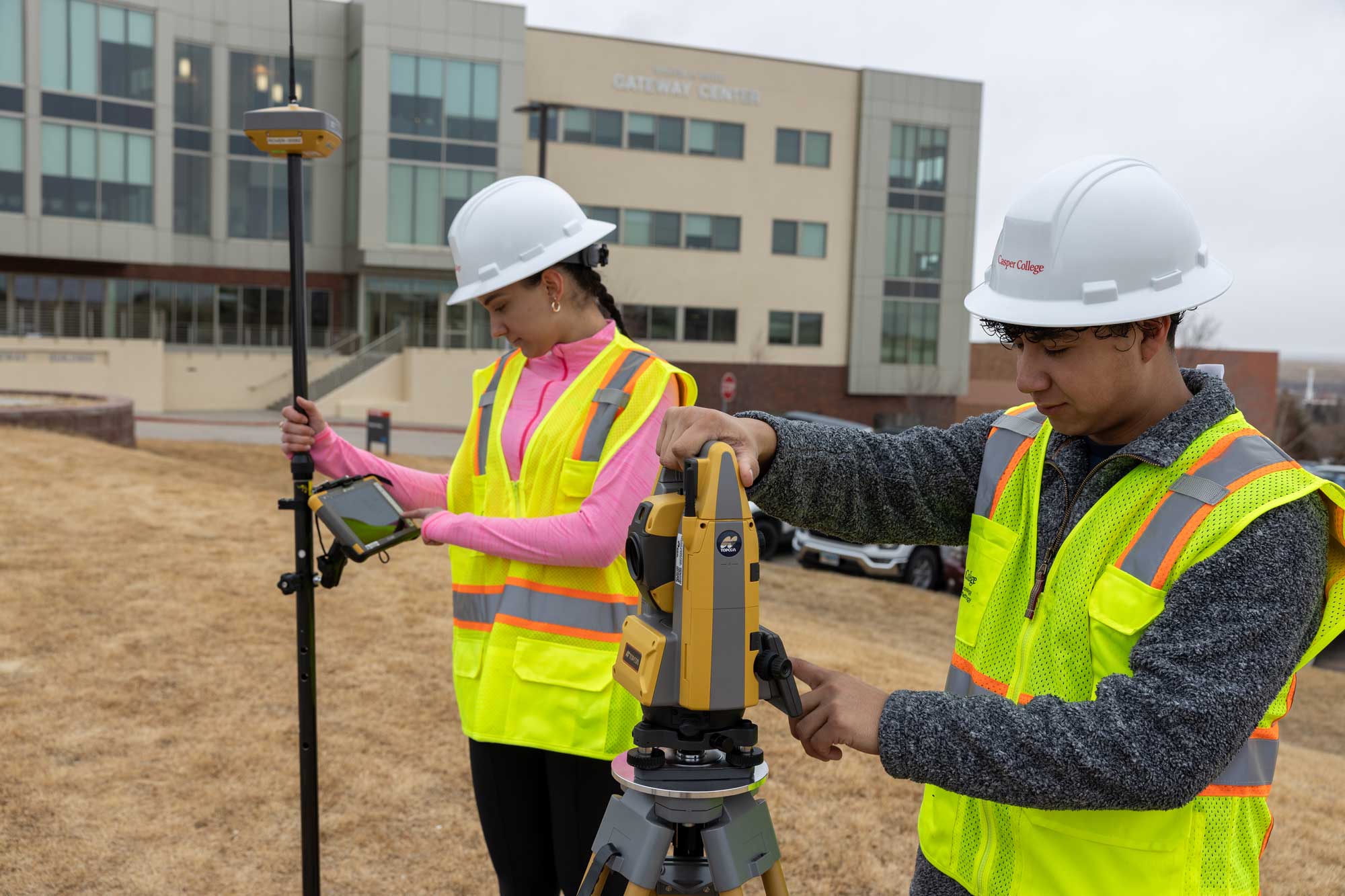
Construction Staking and GPS
What can I do With a Certificate in Construction Staking?
Construction staking appeals to the person who enjoys working with their hands and creating something new outside an office setting and in a construction setting. They get a sense of meaning in knowing their work is of vital importance to the success of the project and creating critical infrastructure for your community. Some of the duties this person will do include:
- Site layout and/or rough construction staking according to construction plans.
- Use GNSS and GPS technologies to precisely map or plot locations for buildings, roads, grading, and other features for construction.
- Work with software such as AutoCAD, Civil 3D, and GIS mapping.
- Perform construction-related computations and staking plans.
- Use machine control to operate road graders, dozers, and scrapers.
Some common job titles include grade setter, construction surveyor, or GPS survey tech. Typical starting wages range from $26 to $28 per hour. A construction staking role can lead to other career opportunities.
What are the special admission requirements, if any?
There are no pre-reqs for this program.
Recommended Curriculum Sequence
Fall Semester
ENTK 1500 — Engineering Graphics 4 credits
ENTK 1010 — Elements of Surveying 3 credits
ENTK 1060 — Excel Technical Applications 3 credits
CNTK 1525 — Materials Handling and Construction Equipment 3 credits
GIST 2310 — Introduction to GIS 4 credits
Spring Semester
CNTK 2530 — Construction Staking and GPS 3 credits
ENTK 2550 — Civil Drafting I 4 credits
GIST 1060 — Introduction to Remote Sensing and Drones 3 credits
ELTR 1545 — Utility Locator Certificate 2 credits
CNTK 2980 — Cooperative Work Experience 4 credits
For requirements and more information about this program, view its listing in the academic catalog:
Interested in online learning?
A portion of the courses in this program may be available online. Learn more about online programs and courses at Casper College.
You may also be interested in…
These related programs:
Secondary Education CTE Endorsement
Are you a licensed teacher or teaching with a PIC permit? Are you interested in teaching this subject matter in classes at the junior, middle, and/or high school levels? You can complete a set of courses within this program to qualify for a career and technical education teaching endorsement. Learn more about which courses count toward a CTE endorsement...
